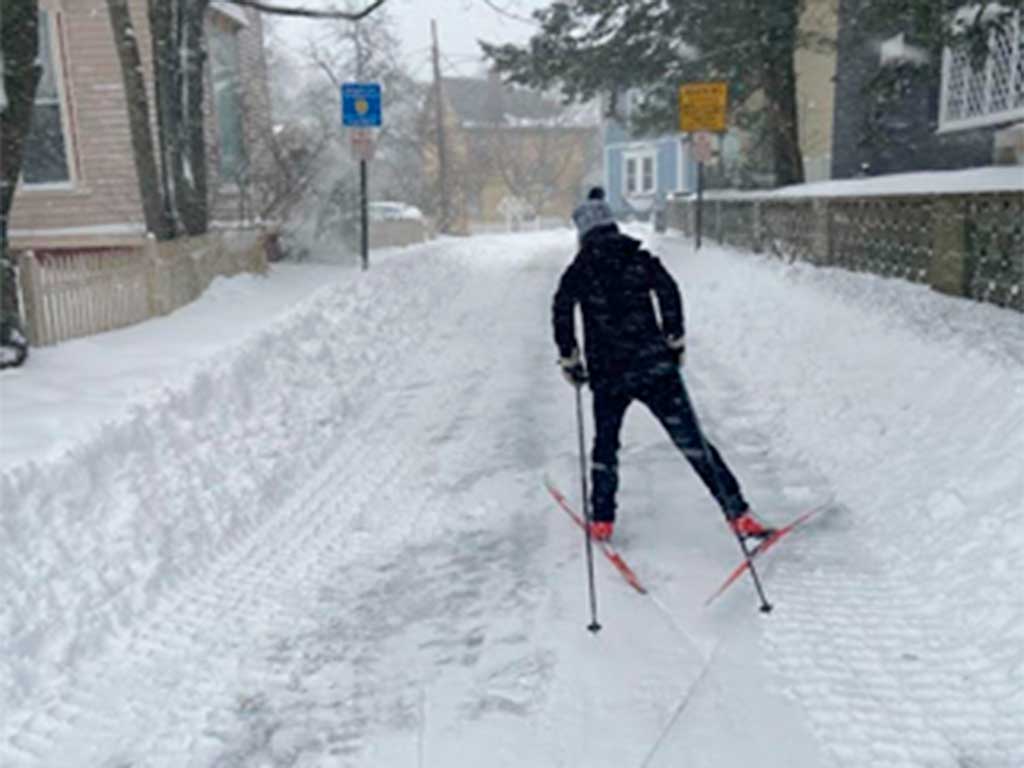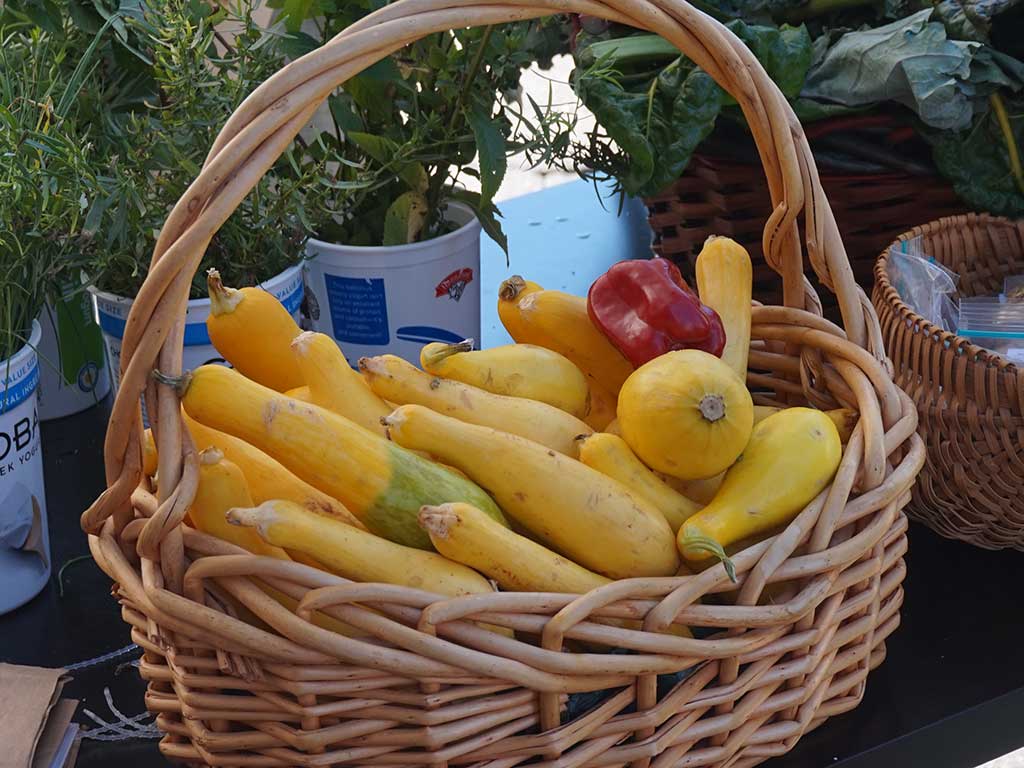
Shifting Baseline: It’s been snowy and cold out. Enjoy it!
By Marie Caspard
Whether you’re grumbling about snow bans or reveling outside in the snow, this year’s season has been feeling like a true winter, despite its slow start. With new snowfall totaling 58.4 inches as of February 17th, we’ve already gotten more snow than in the last four winters[1]. With consistent cold temperatures keeping the snow from melting, we reached a maximum snow depth of 19 inches on February 9th, which we haven’t seen in Portland since winter 2016-2017[2].

However, this winter’s notability might not actually be a function of this year’s winter being particularly “good” or extreme, but rather the last few years being particularly “bad.” Depending on the timeline, hitting over 58 inches of new snowfall is pretty standard for a Maine winter. In the last 100 years[3] 62% of winters have reached total snowfall above 58 inches. In the last10 years however, that share has dropped down to 51%. Ask yourself, does this winter feel impressive or normal?
Shifting Baseline Syndrome
Psychologists Peter Kahn and Thea Weiss coined the term “environmental generational amnesia” to describe a phenomenon in which children perceive the environment into which they are born as normal, despite degradation and decline of nature[4].
Fisheries scientist Paul Daly also coined the term “shifting baseline syndrome” to describe a process through which fisheries scientists were/are accommodating a gradual disappearance of resource species and inappropriate reference points for evaluating economic losses from overfishing because each “generation of fisheries scientists accepts as a baseline the stock size and species composition that occurred at the beginning of their careers.”[5]
Though these terms were developed within specific contexts, studying nature in urbanized places and fisheries management, their broad themes can be applied to climate change. Each generation accepts what they grew up with as “normal.”
Addressing climate change requires a bold, creative imagination of what our future might look like – and a solid memory of our past, some of which we might seek to return towards – can help. Environmental generational amnesia or shifting baseline syndrome might make that creativity a bit harder.
One solution Peter Kahn proposes is interacting with nature in diverse, robust ways[6]. Now is the time to make memories in an “old-fashioned” Maine winter. So hop into your boots, skates, or whatever other winter gear you prefer and enjoy!
PCAT
Bright Ideas is brought to you by PCAT, which meets the fourth Tuesday of the Month, 6 to 7:30 p.m. All are welcome.
FMI: Portlandclimateaction@gmail.com or http://facebook.com/PortlandClimateActionTeam
[1] Monthly Total Snowfall for Portland Area, ME data from the National Weather Service: https://www.weather.gov/wrh/Climate?wfo=gyx
[2] Climatological Data for Portland Area, ME from the National Weather Service: https://www.weather.gov/wrh/Climate?wfo=gyx
[3] Note only 91 years between winter 1924-25 and winter 2023-24 had no missing data. Only these data were used to calculate % winters with snowfall above 58”. Monthly Total Snowfall for Portland Area, ME data from the National Weather Service: https://www.weather.gov/wrh/Climate?wfo=gyx
[4] https://www.jstor.org/stable/10.7721/chilyoutenvi.27.2.0007
[5] https://media.longnow.org/files/2/REVIVE/Shifting%20Baseline_Pauly.pdf
[6] https://www.jstor.org/stable/10.7721/chilyoutenvi.27.2.0007





